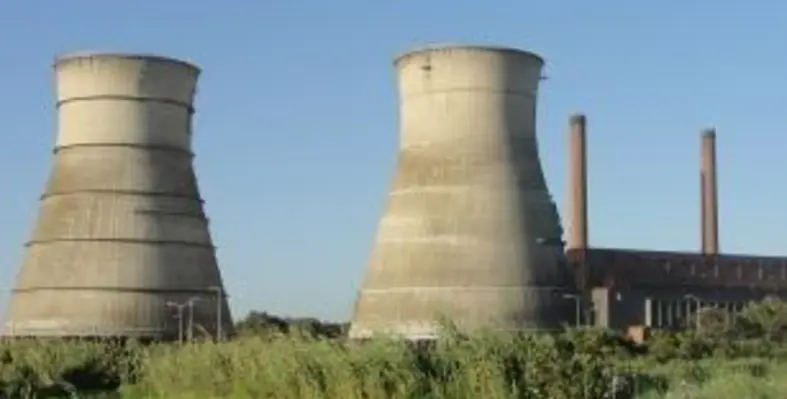ACWA Power set to build a 306MW coal fired power plant using innovative Circulating Fluidised-Bed (CFB) technology being used for the first time in South Africa
An ACWA Power led consortium was announced as the preferred bidder for the Khanyisa Coal-Fired Project by the Department of Energy Minister Tina Joemat-Pettersson. Part of the first round of the coal base-load Independent Power Producers Programme, the 306MW plant will be the first of its kind in South Africa featuring modern circulating fluidised-bed (CFB) technology.
Located in Mpumalanga Province, the country’s coal hub, the Khanyisa power plant is ACWA Power’s first foray into the coal space in South Africa. Khanyisa will make use of the discard coal abundantly available as waste piles in the nearby Anglo American collieries thereby significantly reducing the environmental impact of the waste mountains on the surrounding region and will in addition avoid the need and eliminate the consequences of mining new coal seams.
Even though utilizing this waste is technically complex and increases capital and operating cost, the tariff delivered by the company is well below the stipulated qualification first year price of ZAR 82c/kWh (US$ 5.93c/kWh) as recognised by minister Joemat-Pettersson in making the announcement.
The Khanyisa Coal-Fired Project will be constructed and operated in full compliance with the strict environmental standards of South Africa, the Equator Principles and the World Bank standards. Utilising innovative circulating fluidised-bed (CFB) technology, even with this discard coal of low heat content, the sulphur oxide and nitrogen oxide emissions will be lower than those of coal-fired power stations currently operating in South Africa.
Furthermore, the Khanyisa power plant is designed as a zero liquid effluent discharge plant in an effort to further minimize the impact on the environment. The water used at the power plant will be reclaimed from underground mine operations and this in combination with a dry cooled power plant configuration which itself will minimize water consumption will negate the need to consume precious local water resources.
The award clearly reasserts the policy of the Government of South Africa to to add much needed efficient power generation capacity at competitive cost by utilizing the private sector to finance, develop and operate power plants using an IPP model of contracts. Paddy Padmanathan, President and CEO of ACWA Power reconfirmed the company’s commitment to increasing its investment in the power sector of the country.
“ACWA Power has been fortunate to participate in both the Renewable Energy IPP and the coal base-load IPP programme both of which are well structured and professionally managed, providing us confidence to invest for the long term in the South African energy sector,” echoed Padmanathan in his enthusiastic support of the DOE led IPP programmes in the country.
“Following on from the Bokpoort CSP project which is now fully operational and the Redstone CSP project where construction is expected to commence soon, the Khanyisa award demonstrates ACWA Power’s commitment to the South African IPP market and our ambition to create a strong, self-sustaining multi-fuel portfolio,” enthused Padmanathan. He went on to say “we are also proud of the fact that we have yet again been able to deliver a most competitive tariff, just as in the case of the other two investments”,
“The local partners in the ACWA Power led consortium include Thebe Investments, Pele Natural Energy, Mazi Capital and Palace Group,” according to the head of business development for ACWA Power Southern Africa, Prabashen Govender. He went on to state that the overall BEE equity participation in the project is in excess of 37 per cent clearly showing that local empowerment in large power projects in South Africa is possible and sustainable.
“The construction activity will create direct work for more than 3000 people and during the operational life of the plant a team of 150 will be employed for the long term,” noted Govender.
The plant will be operated and maintained by a partnership between Palace Group, an emerging South African BEE enterprise and NOMAC, a company which is wholly owned by ACWA Power, bringing additional international IPP operating best practice into the South African economy.
In addition ACWA Power has committed to extensive skills development, supplier development and a high level of local content in support of the coal base-load IPP programme. “Delivering much more than just MWs to the nations in which we elect to invest, by maximising local content, with local people running operations and providing goods and services is part of the ACWA Power strategy to ensure that our own business is sustainable for the long-term” concluded Padmanathan.












